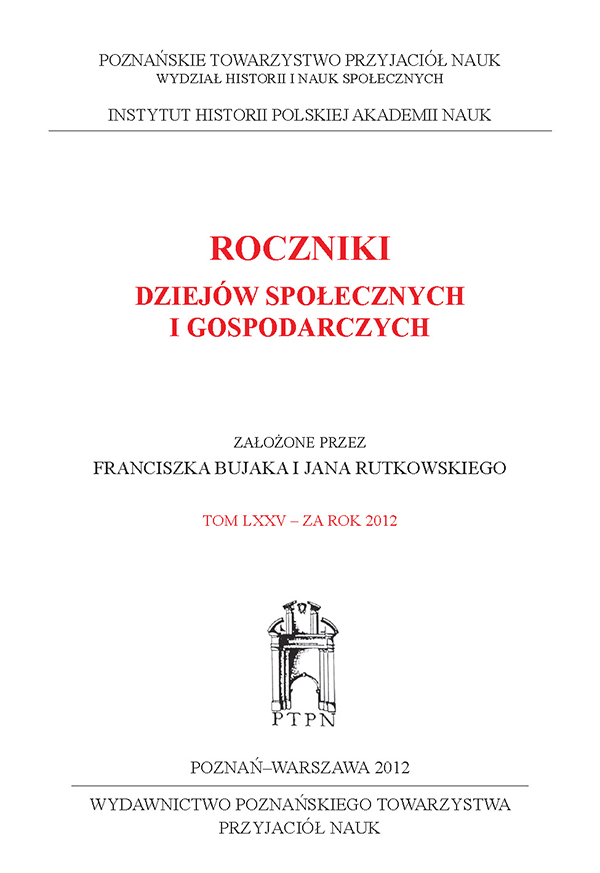Annuitants and Old Age Pensioners in the Polish Social Insurance System in 1944–1958. Material Situation and Survival Strategies
DOI:
https://doi.org/10.12775/RDSG.2012.07Abstract
Annuitants and Old Age Pensioners in the Polish Social Insurance System 1944–1958. Material Situation and Survival Strategies
(Summary)
Annuitants and old age pensioners comprised a social group whose numbers steadily increased in post-war Poland (from almost 187,000 people in 1945 to more than 800,000 in 1954), although Polish society was one of the most recent in Europe. The vast majority of people of retirement age consisted of women (ca. 70%). The resurgence of the social insurance system in the post-war period, within its pre-war institutional forms, was gradually deprived of its autonomy, becoming centralised and subjected to the implementation of the Party and the State’s changing objectives. Many types of insurance policies (i.e. health, family) were expanded and became more universal, as did bringing insurance for blue-collar workers into line with that for white-collar workers. The employer was now burdened with paying the obligatory insurance dues. The financial independence of the social insurance system was abolished. 1950 ushered in the dominating concept of social insurance in the Polish social security system, which remained in force until 1968, its point of departure being the Law on the Social Insurance Institution (ZUS) passed on 20 July 1950. The law abolished the separate insurance fund by including the insurance budget within the state budget, with ZUS becoming its executor. Health care was excluded and was now entrusted to the Employees Health Care Fund Board. Social insurance offi ces were also closed down. The Law of 29 December 1951 also included in ZUS the National Pension Fund Office, which made payments predominantly to full-time state functionaries and the professional military. This system created new groups of privileged and the degraded, depending on the availability and quality of the services, and selected according to ideological and political criteria and current economic needs. Although the characteristic features of the benefits system binding in the Stalinist period encompassed an increasingly large number of the PRL’s population, it did not guarantee the majority of old-age pensioners and annuitants funds which were necessary for maintaining at least a minimum subsistence. The high salary and wage increases in 1954 and 1958 were still not high enough to allow the majority of pensioners and annuitants to meet their basic needs. In this situation, the most frequently used survival strategies involved professional work and sharing accommodation with family members, as a rule combined with the performance of various household chores. This difficult material situation was the prevailing reason for the pessimistic vision of reality reflected in the letters and complaints addressed by old-age pensioners to the central Party and state institutions. Bitterness, a feeling of resentment and, at times, outright despair, was accompanied with criticism of the government which was often accused, in harsh terms, of being responsible for the misery of their daily existence.
Downloads
Published
How to Cite
Issue
Section
Stats
Number of views and downloads: 494
Number of citations: 0



